Emerging Disruptors in Water Technologies
Worldwide – Virtually
October 23, 2025
Welcome to the Emerging Disruptors in Water Technology Conference. Join investors, dealmakers, and representatives from the water technology industry. Listen to CEOs of some of the most dynamic water technology companies discuss the latest innovations in water technology. Don’t miss this opportunity to learn about groundbreaking developments shaping the future of water technology. Attend virtually on October 23, 2025.
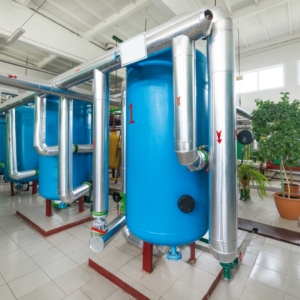
The global water treatment technology market was valued at $168 billion in 2020 and is projected to reach $265.9 billion by 2030, growing at a compound annual growth rate of 4.8% during this period.
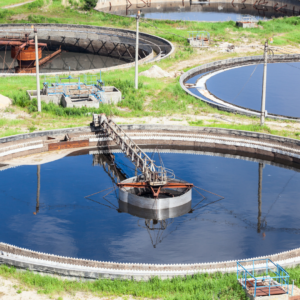
The following are among the key drivers for the water technologies industry:
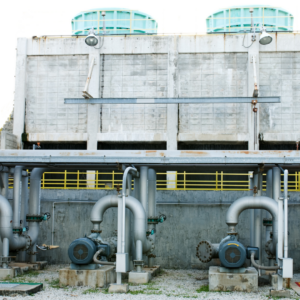 Increasing Demand for Clean and Safe Water:
Increasing Demand for Clean and Safe Water:
- Rapid population growth and urbanization have intensified pressure on water resources, necessitating effective treatment solutions to ensure potable water availability.
- Contamination from pollutants, industrial discharge, and agricultural runoff has increased the need for advanced water treatment technologies.
Water Scarcity and Resource Management:
- The global scarcity of freshwater resources has led governments and industries to invest in technologies for reclaiming wastewater, desalination, and sustainable water management practices.
- Declining groundwater levels further highlight the need for alternative sources and efficient treatment systems.
Stringent Environmental Regulations:
- Governments worldwide are imposing stricter regulations on wastewater discharge and drinking water quality to reduce pollution and protect resources.
- Compliance with these regulations drives innovation and adoption of advanced technologies across industries.
Rapid Industrialization:
- The expansion of industries generates significant volumes of wastewater, requiring effective treatment to prevent environmental damage.
- Industrial sectors such as oil & gas, chemical manufacturing, and food & beverage are major users of water treatment technologies.
Aging Infrastructure:
- Investments in upgrading outdated water treatment facilities with modern technologies are increasing to meet growing demand and improve efficiency.
Technological Advancements:
- Innovations such as reverse osmosis (RO), UV disinfection, and automation systems (e.g., Industry 4.0) are making water treatment more efficient and cost-effective.
- The adoption of eco-friendly additives with low environmental impact is also driving growth.
Government Initiatives and Investments:
- Increased funding for municipal water treatment projects and research in developing regions like Asia-Pacific supports market expansion.
The following are among the developments in water treatment technologies:
Advanced Filtration Technologies
- Nanofiltration: Combines the benefits of reverse osmosis and ultrafiltration to remove salts, organic molecules, and micropollutants while retaining essential minerals. Innovations like graphene-based membranes improve permeability and energy efficiency.
- Membrane Technologies: New materials such as nanocomposites and biomimetic membranes enhance selectivity, reduce fouling, and improve water recovery rates. These are used in applications like seawater desalination and wastewater treatment.
Smart Monitoring and IoT Integration
- Real-Time Water Quality Monitoring: IoT devices, machine learning, and remote sensing enable continuous monitoring and early detection of contaminants. This allows for more efficient and targeted treatment strategies.
- AI-Powered Predictive Analytics: Helps utilities optimize processes by predicting potential water quality issues before they arise.
Energy-Efficient Solutions
- Solar-Powered Systems: Solar desalination and solar-powered treatment plants reduce energy consumption while providing sustainable solutions for water-scarce regions.
- Low-Energy Desalination: Techniques like forward osmosis and membrane distillation minimize energy use compared to conventional methods.
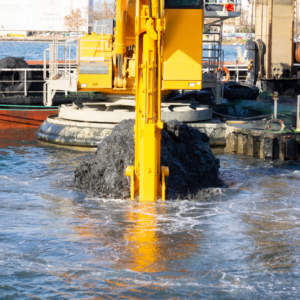 Circular Water Management:
Circular Water Management:
- Water Reuse and Recycling: Technologies enabling wastewater reclamation and zero-liquid discharge systems support sustainable water use in industries and municipalities.
- PFAS Removal: Advanced methods to destroy per- and polyfluoroalkyl substances (PFAS), which are persistent environmental pollutants, are gaining traction.
Bio-Based and Nature-Inspired Solutions:
- Biomimetic Membranes: Inspired by natural processes, these membranes use aquaporin proteins for highly selective filtration with minimal energy requirements.
- Bio-Based Remediation: The Use of microorganisms or bioengineered materials to remove contaminants from water naturally.
Modular and Scalable Systems:
- Modular systems allow for flexible deployment in remote or small-scale applications, making them ideal for underserved communities or emergency responses.
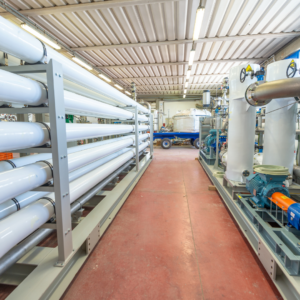 Despite growing interest, venture investment in water innovation remains relatively low at $100 million – $200 million annually. The water technologies companies below recently received venture capital investment:
Despite growing interest, venture investment in water innovation remains relatively low at $100 million – $200 million annually. The water technologies companies below recently received venture capital investment:
| Company | Home Country | Company Description |
| Wayout | Sweden | Micro-factories providing clean drinking water using membrane filtration and UV disinfection. |
| Openversum | Switzerland | Micro-franchising water membrane filters to local entrepreneurs in distressed areas. |
| Kilimo | Argentina | SaaS platform using big data and machine learning for agricultural water savings and offset credits. |
| Oneka Technologies | Canada | Wave-powered desalination plants for coastal regions. |
| Boon | India | AI and IoT-based solutions for affordable access to clean drinking water. |
Below are highlights of recent acquisitions in the water technology industry:
| Acquirer | Target | Description of Transactions | Transaction Year |
| Aquarion Water Authority | Aquarion Water Company | Eversource sold Aquarion Water Company to the newly formed Aquarion Water Authority. Aquarion serves nearly 250,000 customers across Connecticut, Massachusetts, and New Hampshire, with plans to enhance regional water supply strategies. | 2025 |
| H2O Innovation | NextEra | Sustainable wastewater treatment and reuse. | 2024 |
| DXP Enterprises | Hennesey Mechanical Sales | Municipal water and wastewater treatment market. | 2024 |
| EQT | AMCS Group | Digital waste and water management applications. | 2024 |
| Grundfos | Culligan’s Commercial & Industrial Division | Advanced pump solutions and water technologies. | 2024 |
| A.O. Smith | Impact Water Products | Residential and commercial water treatment equipment. | 2024 |
| ABB | Real Tech | Optical sensor technology for real-time water monitoring. | 2024 |
| Flotilla Partners | Water Treatment Technologies of Florida | Residential and commercial water treatment services. | 2024 |
Each management team will discuss their company’s existing and forthcoming product offerings. They will apprise listeners of their addressable markets and expectations for customer segments served. They will inform us of their research and development efforts, proprietary technologies and patent portfolios. They will tell us about their business models including the extent of their collaborations, licensing strategies, distribution channels, expansion efforts, manufacturing strategies, milestones and exit strategies.
Please check back for the agenda of presenting companies. If you would like to nominate a company to present, please contact Gustavo Yrepa at gustavo@davosinthedesert.us.
Registration is free for members of Davos in the Desert. The registration price for non-members is just $10. Registration is for one attendee. No refunds.


